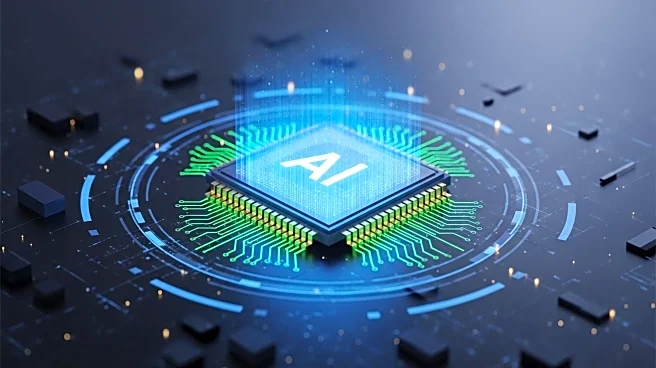What is the story about?
What's Happening?
JPMorgan Chase CEO Jamie Dimon announced that the bank is investing approximately $2 billion annually in artificial intelligence across various sectors such as risk management, marketing, and customer service. This investment reportedly results in equivalent savings, indicating a break-even scenario for the bank. Dimon highlighted the potential of AI to revolutionize industries, citing hundreds of use cases already implemented within JPMorgan. Despite the potential risks to employment, Dimon remains optimistic about AI's ability to drive significant cost savings and efficiency improvements. The bank's commitment to AI reflects its strategic focus on leveraging technology to enhance operations and maintain its position as the largest bank in the United States by total assets.
Why It's Important?
The substantial investment in AI by JPMorgan Chase underscores the growing importance of technology in the financial sector. By achieving cost savings equivalent to its investment, the bank demonstrates the potential for AI to transform traditional banking operations, offering a model for other financial institutions. This move could lead to increased competitiveness and innovation within the industry, as banks seek to optimize processes and reduce operational costs. However, the adoption of AI also raises concerns about job displacement, as automation may replace certain roles. The broader impact on the workforce and the economy will depend on how banks balance technological advancements with human capital.
What's Next?
JPMorgan Chase is likely to continue expanding its AI initiatives, exploring new applications and use cases to further enhance efficiency and cost savings. As AI technology evolves, the bank may face regulatory scrutiny regarding data privacy and ethical considerations. Additionally, the financial sector may see increased competition as other banks invest in similar technologies to remain competitive. Stakeholders, including employees and policymakers, will need to address the implications of AI on employment and industry standards. The bank's ongoing commitment to AI suggests a future where technology plays a central role in shaping financial services.
Beyond the Headlines
The integration of AI into banking operations raises ethical and legal questions, particularly concerning data privacy and security. As banks collect and analyze vast amounts of data, ensuring compliance with regulations and protecting customer information becomes paramount. Furthermore, the potential for AI to disrupt traditional banking models may lead to shifts in industry dynamics, with smaller banks and fintech companies leveraging technology to compete with established institutions. The long-term impact of AI on the financial sector will depend on how banks navigate these challenges while capitalizing on technological advancements.















